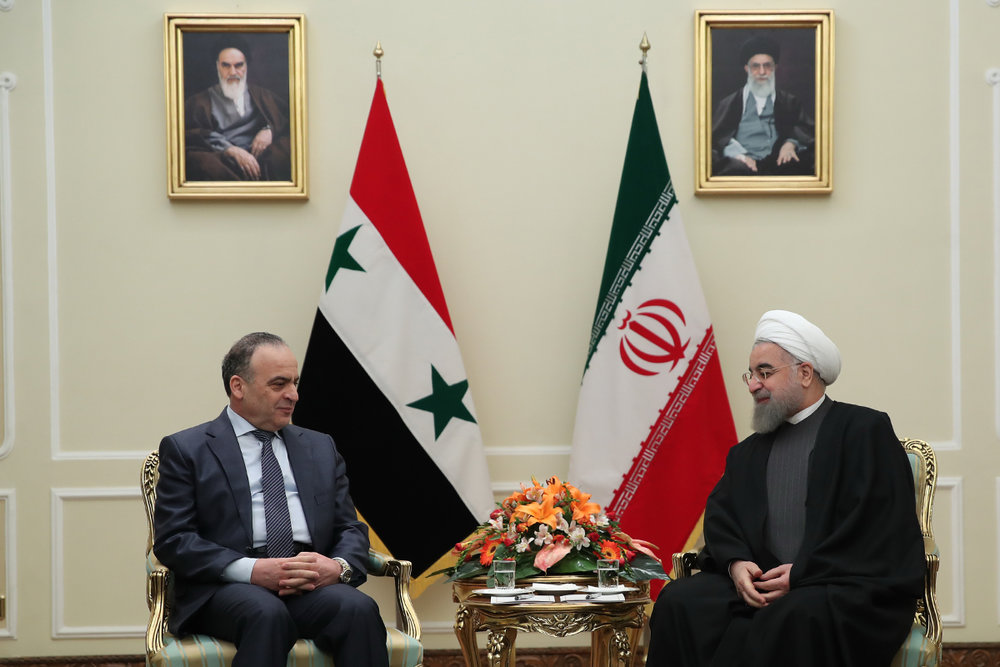Rouhani: Astana meeting expected to trigger intra-Syria dialogue

TEHRAN – Iranian President Hassan Rouhani said on Wednesday that he hoped the planned talks between the Syrian government and the armed opposition groups would lay the groundwork for a start of inter-Syrian talks.
Rouhani made the remarks in a meeting with Syrian Prime Minister Imad Khamis in Tehran.
The president also said the “liberation of Aleppo” and “ceasefire” are two important steps in line with establishing peace and stability in Syria.
Under a plan introduced by Iran, Russia and Turkey in Moscow on December 20 a ceasefire was declared in Syria on December 30. Under the initiative, known as the Moscow declaration, the warring sides – the government and opposition groups – are scheduled to sit for peace talks in Astana, Kazakhstan, on January 23.
The talks does not include terrorists, including Al-Nusra Front and Daesh.
For his part, Khamis said the liberation of Aleppo was a result of resistance by the Syrian Army and people with a support by Iran.
He also said that his government welcomes any initiative which helps restore stability and security to Syria, expressing hope that the Astana meeting would help find a solution to the nearly six-year war in Syria.
The Syrian prime minister also said Damascus attaches great importance to Iran’s role in the region and called for expansion of relations in various areas.
‘Iran is strongly against U.S. participation in Astana talks’
In a separate meeting with Khamis, top Iranian politician Ali Akbar Velayati said Tehran is strongly against participation of the U.S. in the Astana negotiations.
“The U.S. is leader of the supporters of terrorists and has insisted on toppling the Syrian legal government and bringing a mercenary government to power in Damascus,” noted Velayati, the foreign policy advisor to the Leader.
He also said that Iran will spare no effort in restoring stability to Syria.
The veteran politician added Syria’s territorial integrity must be protected and that it is the Syrian people who should decide about the future of their country.
Elsewhere, Velayati highlighted the importance of expanding “strategic” ties between Tehran and Damascus.
NA/PA
